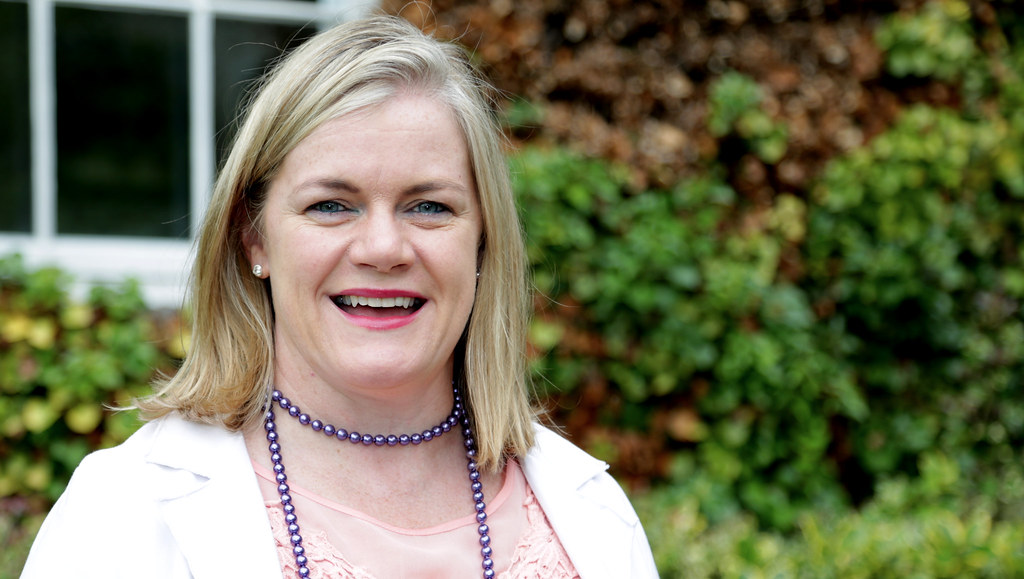Dr Denise Proudfoot completed her Professional Doctorate in Health at Bath while working as a nurse lecturer at Dublin City University. She has a background in mental health, primary care and sexual health promotion, and her particular interest in gender and HIV continued in her postdoctoral research.
The following is an abridged transcript of a podcast Denise delivered to the Viva Survivors portal. She talked to Dr Nathan Ryder about her research and thesis, entitled A narrative exploration of the experiences of mothers living with HIV in Ireland.
How did you come to do a professional doctorate?
My background's in mental health nursing and general nursing, but I had a huge interest in HIV. I originally worked as a nurse in London, specifically with people who were HIV positive, and most of my caseload was women. There were limited drug options for mothers during pregnancy, to prevent their baby being born with HIV.
I wanted to do something I was passionate about and set out to provide an understanding of the lives of HIV positive mothers in Ireland. I wanted to examine the social meaning of the process, and used a feminist mothering research approach to explore what it’s like to be a HIV positive mother - and maybe give voice to these women.
In the mid-1990s the development of combination therapy had a significant effect on the health of people with HIV and a significant impact on the chances of a pregnant HIV positive woman having a HIV positive baby. The chance of a baby being born with HIV is now very low.
How did you make the transition to starting your research?
Since the early 2000s, I've been working as a lecturer in nursing. A lot of my colleagues had started PhDs or doctorates and I knew it was inevitable that I'd want to do one, so I started looking at options. I came across the Professional Doctorate in Health at the University of Bath and started as a part-time student, combining this with lecturing at Dublin City University.
I was working full-time as an academic while I was a part-time student and it was quite challenging, but because I was in an academic environment it helped; I had access to a lot of resources. The last three years were probably the busiest.
How did you carry out the research?
My study was a narrative study. I met 11 mothers who were attending a HIV peer support centre in Dublin and asked them about their experiences. The research was enjoyable, and the actual data collection - interviews with mothers and women - was really interesting and relatively straightforward.
What was your most important discovery?
One of the key findings I summarised in my thesis is that being a mother impacts on the HIV experience; and vice versa, being HIV positive impacts on mothering. When they’re diagnosed, a lot of the women's priority is their children. The first thing they want to know is ‘is my child HIV positive?’, irrespective of the age of the child. Some woman were pregnant, some had young children and others had older children. They're very child-centred, and this impacted on their responses to their HIV result.
Are there differences between a PhD and a professional doctorate?
Yes, quite a few. I chose a doctorate because I like structure, and the peer element of the programme was strong. In the first couple of years, we did a lot of research training, looking at both qualitative and quantitative methods, which I think is important. We had assignments, which is different to a PhD where you have a narrower focus. I enjoyed the structure, and as I progressed through the programme there were milestones to achieve.
Another difference is that you’re journeying with other people. The majority of people on the Doctorate were mature students and senior professionals across health disciplines, so you have an interesting group to work with. Some were clinicians, whereas I came from an academic background in a practice discipline. The thesis is smaller, in the end, compared to the PhD, but it’s very much quality as opposed to quantity. One of the skills you develop is having to be quite succinct, but I got a good overall research training. I feel I have a good understanding of other research methodologies I might have learned if I’d done a PhD.
What advice would you give to someone starting the Doctorate?
Choose a topic you’re passionate about and interested in, to sustain your interest over a long period of time. You learn an awful lot about yourself throughout the process. Keep going, and take breaks if needed. There are times when it’s straightforward and times when it's challenging, but it’s definitely worthwhile.
